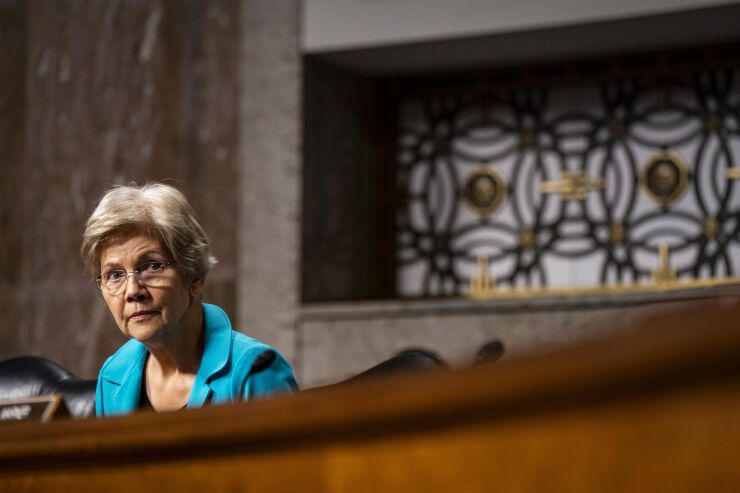
WASHINGTON — Sen. Elizabeth Warren, D-Mass., has asked Federal Deposit Insurance Corp. Chairman Martin Gruenberg to deny a
Under a
Some large banks, according to a Wall Street Journal report, have been floating the idea of paying the fee, which will replenish the deposit insurance fund with underwater Treasury bonds.
"In simple terms, the biggest banks — who have experienced a surge in deposits after the SVB failure, received favorable loans from the Fed's Bank Term Funding Program in March 2023, and had $30 billion of their own deposits guaranteed in the First Republic sale — are now seeking to pay back the gap in the deposit insurance fund with devalued assets, getting those assets off their books, while leaving the federal government to assume the risk," Warren said in the letter.
The politics of which banks should contribute the most to replenish the deposit insurance fund
The executives of larger banks, particularly those with large piles of uninsured deposits have been wary of complaining, as the Biden administration's decision to step up stemmed from fear that they would also see runs on their own banks.
"Approval of this proposal would be an outrageous breach of the FDIC's responsibilities, and I urge you to reject it or any similar approach that would unjustly enrich big banks at taxpayer expense," Warren said in the letter.






